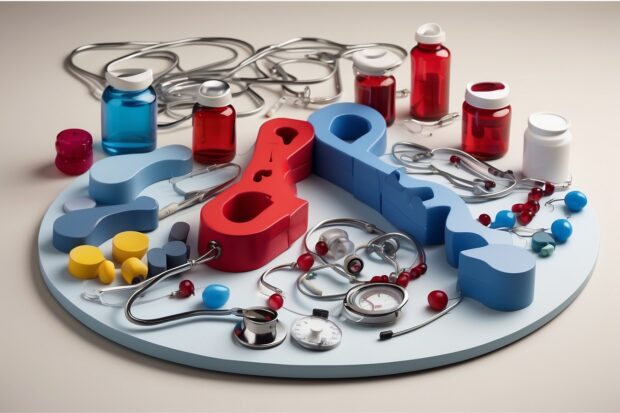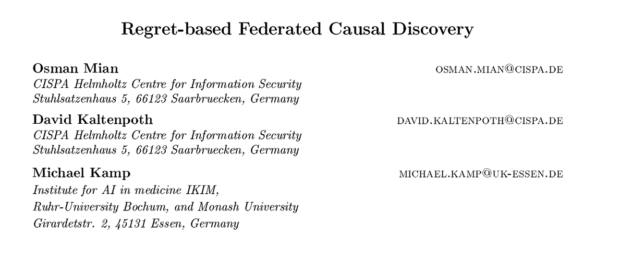Discovering causal relationships enables us to build more reliable, robust, and ultimately trustworthy models. It requires large amounts of observational data, though. In healthcare, for most diseases the amount of available data is large, but this data is scattered over thousands of hospitals worldwide. Since this data in most cases mustn’t be pooled for privacy reasons, we need a way to learn a structural causal model in a federated fashion.
At this year’s AISTATS, my co-authors Osman Mian, David Kaltenpoth, Jilles Vreeken and me presented the paper “Nothing but Regrets – Privacy-Preserving Federated Causal Discovery” in which we show that you can discover causal relationships by sharing only regret values with a server: The server sends a candidate causal model to each client and the clients reply with how much worse single-edge extensions of this global model are compared to the original global model. From this information alone, the server can compute the best extension of the current global model.
In practice, the environments at the local clients are not the same. We should expect local differences that could be modeled by interventions into the global causal structure. In our AAAI paper “Information-Theoretic Causal Discovery and Intervention Detection over Multiple Environments” we have shown how to discover a global causal structure as well as local interventions in a centralized setting. Our current goal is to combine these two works to provide an approach to federated causal discovery from heterogeneous environments.

